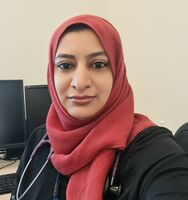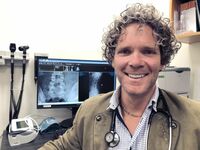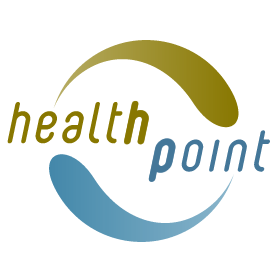North Auckland > GPs / Accident & Urgent Medical Care > Comprehensive Care >
Northcare Accident & Medical
Accident & Urgent Medical Care (A&E) Service, General Practice (GP)
Today
8:00 AM to 6:30 PM.
Description
Northcare is a state-of-the-art clinic with multiple onsite facilities, conveniently located in the centre of the North Shore.
ACCIDENT / URGENT CARE
We accept all walk in patients for Urgent Care.
GENERAL PRACTICE
For enrolled patients only.
At Northcare we have a caring and committed team of male and female doctors. Together they offer a comprehensive range of skills and special interests, including diabetes care, cardiovascular medicine, women's and men's health including family planning and sexual health, children's health, aged care, sports medicine and minor surgery including skin surgery, ingrown toenails/wedge resections, tongue ties etc. Pre-payment is required.
We are also able to conduct pre-employment medicals, driving medicals, diving medicals, New Zealand and Australian Immigration and Seafarers medicals. If you require a specific medical, it is better to phone than book online as you may need to see the nurses first and have a longer appointment.
Our doctors operate as a team and patients are encouraged to get to know more than one. Sometimes you may be looking for a doctor with a special skill set or maybe male/female. The doctors are all working from the same notes and the same price applies whichever you choose to book with on the day. Also, we are open extended hours and no individual doctor can be here all the time.
Standard consultations are for up to 15 minutes. We will do our best not to keep you waiting and ask that you recognise our doctors need to keep to time too.
Doctors
-

Dr Peter Boot
General Practitioner - Vocationally Registered
-

Dr Anuj Gupta
General Practitioner - Vocationally Registered
-

Dr Sonya Hardcastle
General Practitioner
-

Dr Anubhav Kumar
General Practitioner
-

Dr James Manning
General Practitioner
-

Dr Ethan Richards
General Practitioner
-

Dr Amna Samad
General Practitioner
-

Dr Martin Schiebel
General Practitioner - Vocationally Registered
-

Dr Sarah Yap
General Practitioner
Ages
Child / Tamariki, Youth / Rangatahi, Adult / Pakeke, Older adult / Kaumātua
How do I access this service?
Anyone can access
Make an appointment
No appointment required
Walk in
Website / App
http://northcare.nz
Enrolling new patients
Yes
This practice is enrolling new patients.
Please take note that there is a one off enrolment charge of $46 as of 01 September 2024 for patients 16yrs and older. Children under 16yrs can not be enrolled without a parent also being enrolled. Please be aware that starting October 10, 2024, we will require pre-payments for all services
Fees
Enrolled Patient Fees
| Age Range | Without CSC | With CSC |
|---|---|---|
| Under 6 years | Free | Free |
| 6 to 13 years | Free | Free |
| 14 to 17 years | $49.00 | $49.00 |
| 18 to 24 years | $65.00 | $65.00 |
| 25 to 44 years | $79.00 | $79.00 |
| 45 to 64 years | $79.00 | $79.00 |
| 65+ years | $69.00 | $69.00 |
Weekend and Public Holidays: Surcharges to standard fees apply to all age groups.
ACC surcharges differ to above fees.
Consultations are 10-15 mins duration; an extra fee will be charged for extended consults.
Pre-payment is required for all services.
Fees and Charges Categorisation
Fees apply
Hours
8:00 AM to 6:30 PM.
| Mon – Sun | 8:00 AM – 6:30 PM |
|---|
Public Holidays: Open on all public holidays outside the Christmas period.
Christmas: Open 23 Dec — 24 Dec. Closed 25 Dec. Open 26 Dec — 10 Jan.
Languages Spoken
English, Arabic, Chinese, Cantonese Chinese, Mandarin Chinese, Serbian, Afrikaans
Services Provided
Your GP's surgery is far more than a place to go when you are feeling unwell and needing a quick cure. The doctor who sees you has gone through an extensive medical training to equip her or him to help children and adults of all ages with a range of physical and emotional difficulties. GPs are at the centre of the healthcare hub and will be aware of services and expertise that are available locally and further-a-field. GPs are also aware of the link that stress and unhappy life events have on physical health so know when to suggest a talking therapy rather than medication.
Your GP's surgery is far more than a place to go when you are feeling unwell and needing a quick cure. The doctor who sees you has gone through an extensive medical training to equip her or him to help children and adults of all ages with a range of physical and emotional difficulties. GPs are at the centre of the healthcare hub and will be aware of services and expertise that are available locally and further-a-field. GPs are also aware of the link that stress and unhappy life events have on physical health so know when to suggest a talking therapy rather than medication.
Your GP's surgery is far more than a place to go when you are feeling unwell and needing a quick cure. The doctor who sees you has gone through an extensive medical training to equip her or him to help children and adults of all ages with a range of physical and emotional difficulties. GPs are at the centre of the healthcare hub and will be aware of services and expertise that are available locally and further-a-field. GPs are also aware of the link that stress and unhappy life events have on physical health so know when to suggest a talking therapy rather than medication.
Primary care practices offer a range of services and are able to deal with most minor accident care. If they are not able to deal with an injury they will refer on to the appropriate service.
Primary care practices offer a range of services and are able to deal with most minor accident care. If they are not able to deal with an injury they will refer on to the appropriate service.
Primary care practices offer a range of services and are able to deal with most minor accident care. If they are not able to deal with an injury they will refer on to the appropriate service.
Minor surgery is commonly provided in primary care practices, providing fast, competent removal and biopsies of skin lesions. Other services include cosmetic work such as removal of benign moles and skin tags. Ingrown toenail surgery is also commonly provided. These conditions do not need to be referred to a hospital, perhaps saving you a long wait or a cancelled appointment when a more serious case takes priority.
Minor surgery is commonly provided in primary care practices, providing fast, competent removal and biopsies of skin lesions. Other services include cosmetic work such as removal of benign moles and skin tags. Ingrown toenail surgery is also commonly provided. These conditions do not need to be referred to a hospital, perhaps saving you a long wait or a cancelled appointment when a more serious case takes priority.
Minor surgery is commonly provided in primary care practices, providing fast, competent removal and biopsies of skin lesions. Other services include cosmetic work such as removal of benign moles and skin tags. Ingrown toenail surgery is also commonly provided.
These conditions do not need to be referred to a hospital, perhaps saving you a long wait or a cancelled appointment when a more serious case takes priority.
Immunisation is the safest and most effective way to provide protection for you and your tamariki’s health. For more information view the NZ immunisation schedule.
Immunisation is the safest and most effective way to provide protection for you and your tamariki’s health. For more information view the NZ immunisation schedule.
- Pregnancy vaccinations
- Childhood immunisation programme
- 45 year old vaccinations
- 65 year old vaccinations
- Adult flu vaccine
- Child flu vaccine
- Diphtheria / Tetanus / Pertussis (whooping cough) vaccine
- Human Papillomavirus (HPV) vaccine
- Measles / Mumps / Rubella (MMR) vaccine
- Meningococcal vaccine
- Shingles vaccine
- Travel vaccinations
Immunisation is the safest and most effective way to provide protection for you and your tamariki’s health. For more information view the NZ immunisation schedule.
Each GP surgery or primary care practice will have its own procedure for repeat prescribing but the following rules are common to most, if not all. Patients who are well-known to the practice who have a stable condition like asthma, hypertension or diabetes could be allowed to get a repeat prescription for up to six months. Repeat prescriptions are never given to patients who are not known to the practice and there is probably a blanket ban on repeats for narcotics and other drugs that could be misused as doctors are expected to monitor these drugs carefully. Practice Policy is to be reviewed every 3 months for your repeat prescription.
Each GP surgery or primary care practice will have its own procedure for repeat prescribing but the following rules are common to most, if not all. Patients who are well-known to the practice who have a stable condition like asthma, hypertension or diabetes could be allowed to get a repeat prescription for up to six months. Repeat prescriptions are never given to patients who are not known to the practice and there is probably a blanket ban on repeats for narcotics and other drugs that could be misused as doctors are expected to monitor these drugs carefully. Practice Policy is to be reviewed every 3 months for your repeat prescription.
Each GP surgery or primary care practice will have its own procedure for repeat prescribing but the following rules are common to most, if not all. Patients who are well-known to the practice who have a stable condition like asthma, hypertension or diabetes could be allowed to get a repeat prescription for up to six months. Repeat prescriptions are never given to patients who are not known to the practice and there is probably a blanket ban on repeats for narcotics and other drugs that could be misused as doctors are expected to monitor these drugs carefully.
Practice Policy is to be reviewed every 3 months for your repeat prescription.
Sometimes your doctor needs to take a sample of blood or urine either to discover what is wrong with you or to measure something in your blood so that the right medication is given to you. These tests could be anything from blood sugar to a full blood count or a sample of tissue to test for cancer. While urine can generally be tested in the surgery, blood and other specimens are usually sent away for testing at a laboratory. Most results come back within 48 hours unless a very rare test is needed which has to go to a specialist lab further away when it might take a little longer.
Sometimes your doctor needs to take a sample of blood or urine either to discover what is wrong with you or to measure something in your blood so that the right medication is given to you. These tests could be anything from blood sugar to a full blood count or a sample of tissue to test for cancer. While urine can generally be tested in the surgery, blood and other specimens are usually sent away for testing at a laboratory. Most results come back within 48 hours unless a very rare test is needed which has to go to a specialist lab further away when it might take a little longer.
Sometimes your doctor needs to take a sample of blood or urine either to discover what is wrong with you or to measure something in your blood so that the right medication is given to you. These tests could be anything from blood sugar to a full blood count or a sample of tissue to test for cancer.
While urine can generally be tested in the surgery, blood and other specimens are usually sent away for testing at a laboratory. Most results come back within 48 hours unless a very rare test is needed which has to go to a specialist lab further away when it might take a little longer.
Liquid nitrogen is a fast, effective treatment provided in many practices to treat viral warts, sun damaged skin, skin tags and many benign cosmetic lesions. It comes in a container with a nozzle and is usually applied by swab or spray. Often one treatment is all that is needed but sometimes it may need repeating after two weeks. Because it cannot be stored for too long, you will often find that your GP will treat a number of patients one after the other. For more information click here.
Liquid nitrogen is a fast, effective treatment provided in many practices to treat viral warts, sun damaged skin, skin tags and many benign cosmetic lesions. It comes in a container with a nozzle and is usually applied by swab or spray. Often one treatment is all that is needed but sometimes it may need repeating after two weeks. Because it cannot be stored for too long, you will often find that your GP will treat a number of patients one after the other. For more information click here.
Liquid nitrogen is a fast, effective treatment provided in many practices to treat viral warts, sun damaged skin, skin tags and many benign cosmetic lesions. It comes in a container with a nozzle and is usually applied by swab or spray. Often one treatment is all that is needed but sometimes it may need repeating after two weeks.
Because it cannot be stored for too long, you will often find that your GP will treat a number of patients one after the other.
For more information click here.
LARC methods are very effective at preventing unplanned pregnancy and are “fit and forget” forms of contraception – you don’t need to remember them every day or every month. LARC methods: Intrauterine Contraceptive Devices (IUCD or IUD) are inserted through the cervix into a woman’s uterus. IUCDs may be either hormonal (Mirena® or Jaydess® ) or non-hormonal (copper IUCD). Jadelle® is a hormone-releasing implant that is inserted just under the skin of the upper arm. Depending on the type of device, it will need to be changed after between three and ten years. Read more about LARC methods here Copper IUD at our clinic. Referrals for Mirena can be made by our GPs, to our visiting specialist Fiona McConnell
LARC methods are very effective at preventing unplanned pregnancy and are “fit and forget” forms of contraception – you don’t need to remember them every day or every month. LARC methods: Intrauterine Contraceptive Devices (IUCD or IUD) are inserted through the cervix into a woman’s uterus. IUCDs may be either hormonal (Mirena® or Jaydess® ) or non-hormonal (copper IUCD). Jadelle® is a hormone-releasing implant that is inserted just under the skin of the upper arm. Depending on the type of device, it will need to be changed after between three and ten years. Read more about LARC methods here Copper IUD at our clinic. Referrals for Mirena can be made by our GPs, to our visiting specialist Fiona McConnell
- Implant (Jadelle) inserts
- IUD removals
- Implant (Jadelle) removal
LARC methods are very effective at preventing unplanned pregnancy and are “fit and forget” forms of contraception – you don’t need to remember them every day or every month. LARC methods:
- Intrauterine Contraceptive Devices (IUCD or IUD) are inserted through the cervix into a woman’s uterus. IUCDs may be either hormonal (Mirena® or Jaydess® ) or non-hormonal (copper IUCD).
- Jadelle® is a hormone-releasing implant that is inserted just under the skin of the upper arm.
Depending on the type of device, it will need to be changed after between three and ten years.
Read more about LARC methods here
Copper IUD at our clinic.
Referrals for Mirena can be made by our GPs, to our visiting specialist Fiona McConnell
All women and people with a cervix aged 25 – 69 who have ever had intimate skin-to-skin contact or been sexually active should have regular cervical screening. This includes women who have been immunised against HPV. Together, regular screening and HPV immunisation provide the best protection against cervical cancer. There are now more options for how you have cervical screening done: a simple vaginal swab test for HPV, either done yourself or with help from a healthcare professional a cervical sample taken by a healthcare professional (used to be known as a smear test). Talk with your healthcare provider to decide which option is best for you. If HPV is found, you may need to have a follow-up test or be referred directly for colposcopy. If you’ve not yet had HPV testing, you should be screened 3 years after your last test (or 1 year if immune deficient). Once you have had an HPV test, and providing HPV is not found, your next screening will be in 5 years (or 3 years if immune deficient). For more information: Cervical screening | Time to Screen - National Screening Unit
All women and people with a cervix aged 25 – 69 who have ever had intimate skin-to-skin contact or been sexually active should have regular cervical screening. This includes women who have been immunised against HPV. Together, regular screening and HPV immunisation provide the best protection against cervical cancer. There are now more options for how you have cervical screening done: a simple vaginal swab test for HPV, either done yourself or with help from a healthcare professional a cervical sample taken by a healthcare professional (used to be known as a smear test). Talk with your healthcare provider to decide which option is best for you. If HPV is found, you may need to have a follow-up test or be referred directly for colposcopy. If you’ve not yet had HPV testing, you should be screened 3 years after your last test (or 1 year if immune deficient). Once you have had an HPV test, and providing HPV is not found, your next screening will be in 5 years (or 3 years if immune deficient). For more information: Cervical screening | Time to Screen - National Screening Unit
All women and people with a cervix aged 25 – 69 who have ever had intimate skin-to-skin contact or been sexually active should have regular cervical screening. This includes women who have been immunised against HPV. Together, regular screening and HPV immunisation provide the best protection against cervical cancer.
There are now more options for how you have cervical screening done:
- a simple vaginal swab test for HPV, either done yourself or with help from a healthcare professional
- a cervical sample taken by a healthcare professional (used to be known as a smear test).
Talk with your healthcare provider to decide which option is best for you.
If HPV is found, you may need to have a follow-up test or be referred directly for colposcopy.
If you’ve not yet had HPV testing, you should be screened 3 years after your last test (or 1 year if immune deficient). Once you have had an HPV test, and providing HPV is not found, your next screening will be in 5 years (or 3 years if immune deficient).
For more information: Cervical screening | Time to Screen - National Screening Unit
An ECG is a recording of your heart's electrical activity. Electrode patches are attached to your skin to measure the electrical impulses given off by your heart. The result is a trace that can be read by a doctor. It can give information of previous heart attacks or problems with the heart rhythm.
An ECG is a recording of your heart's electrical activity. Electrode patches are attached to your skin to measure the electrical impulses given off by your heart. The result is a trace that can be read by a doctor. It can give information of previous heart attacks or problems with the heart rhythm.
An ECG is a recording of your heart's electrical activity. Electrode patches are attached to your skin to measure the electrical impulses given off by your heart. The result is a trace that can be read by a doctor. It can give information of previous heart attacks or problems with the heart rhythm.
Spirometry is a tool that measures how effectively your lungs are working. It is able to show how much air lungs are able to hold (their volume) and how much air can be breathed in and out (inhaled and exhaled) which is called flow. This tool is used to assess damage caused by conditions like COPD (chronic obstructive pulmonary disease – a group that includes bronchitis and emphysema), pulmonary fibrosis, cystic fibrosis and asthma. Results are shown on a graph called a pneumotachograph. For more information click on the following link http://en.wikipedia.org/wiki/Spirometry
Spirometry is a tool that measures how effectively your lungs are working. It is able to show how much air lungs are able to hold (their volume) and how much air can be breathed in and out (inhaled and exhaled) which is called flow. This tool is used to assess damage caused by conditions like COPD (chronic obstructive pulmonary disease – a group that includes bronchitis and emphysema), pulmonary fibrosis, cystic fibrosis and asthma. Results are shown on a graph called a pneumotachograph. For more information click on the following link http://en.wikipedia.org/wiki/Spirometry
Spirometry is a tool that measures how effectively your lungs are working. It is able to show how much air lungs are able to hold (their volume) and how much air can be breathed in and out (inhaled and exhaled) which is called flow. This tool is used to assess damage caused by conditions like COPD (chronic obstructive pulmonary disease – a group that includes bronchitis and emphysema), pulmonary fibrosis, cystic fibrosis and asthma. Results are shown on a graph called a pneumotachograph.
For more information click on the following link http://en.wikipedia.org/wiki/Spirometry
Another service offered to you at your GP surgery (primary care practice) is advice and immunisation before you go to another country. While you are likely to have the immunisations needed to live in New Zealand, there may be other injections you need to protect yourself before going for example to Africa or South America. In some places you will need protection from rabies or malaria. Yellow fever vaccinations are only available at approved centres; please click here to view the centres in New Zealand. Your doctor will be able to tell you what diseases you will need to be protected from in any named country and advise you on other medical matters.
Another service offered to you at your GP surgery (primary care practice) is advice and immunisation before you go to another country. While you are likely to have the immunisations needed to live in New Zealand, there may be other injections you need to protect yourself before going for example to Africa or South America. In some places you will need protection from rabies or malaria. Yellow fever vaccinations are only available at approved centres; please click here to view the centres in New Zealand. Your doctor will be able to tell you what diseases you will need to be protected from in any named country and advise you on other medical matters.
Another service offered to you at your GP surgery (primary care practice) is advice and immunisation before you go to another country. While you are likely to have the immunisations needed to live in New Zealand, there may be other injections you need to protect yourself before going for example to Africa or South America. In some places you will need protection from rabies or malaria. Yellow fever vaccinations are only available at approved centres; please click here to view the centres in New Zealand. Your doctor will be able to tell you what diseases you will need to be protected from in any named country and advise you on other medical matters.
All New Zealand children are entitled to 11 free health checks from birth to three years. The checks aim to ensure that children are growing and developing as well as possible. Included in the checks are clinical assessment, health education and family/whanau support. Baby checks are at birth and then at 24 hours, five days and around 2-4 weeks. Babies are weighed and measured to ensure that they are developing correctly. These sessions provide a great opportunity for parents to ask questions from an expert and have any problem addressed; difficulties with breastfeeding or sleep for example. They can also be used to discuss immunisations and vaccinations. These checks will be carried out by your lead maternity carer (LMC). Between the ages of 4-6 weeks and three years, there are seven core health checks available, typically these are around 4-6 weeks, 8-10 weeks, 3-4 months, 5-7 months, 9-12 months, 15-18 months and 2-3 years. These checks may be carried out by a Well Child Provider of your choice e.g. Plunket, Maori health provider, community nurse, a general practice team (doctor and practice nurse). Your LMC will be able to give you a list of Well Child Providers in your area. More information about Well Child services is available on the Ministry of Health website.
All New Zealand children are entitled to 11 free health checks from birth to three years. The checks aim to ensure that children are growing and developing as well as possible. Included in the checks are clinical assessment, health education and family/whanau support. Baby checks are at birth and then at 24 hours, five days and around 2-4 weeks. Babies are weighed and measured to ensure that they are developing correctly. These sessions provide a great opportunity for parents to ask questions from an expert and have any problem addressed; difficulties with breastfeeding or sleep for example. They can also be used to discuss immunisations and vaccinations. These checks will be carried out by your lead maternity carer (LMC). Between the ages of 4-6 weeks and three years, there are seven core health checks available, typically these are around 4-6 weeks, 8-10 weeks, 3-4 months, 5-7 months, 9-12 months, 15-18 months and 2-3 years. These checks may be carried out by a Well Child Provider of your choice e.g. Plunket, Maori health provider, community nurse, a general practice team (doctor and practice nurse). Your LMC will be able to give you a list of Well Child Providers in your area. More information about Well Child services is available on the Ministry of Health website.
All New Zealand children are entitled to 11 free health checks from birth to three years. The checks aim to ensure that children are growing and developing as well as possible. Included in the checks are clinical assessment, health education and family/whānau support.
Baby checks are at birth and then at 24 hours, five days and around 2-4 weeks. Babies are weighed and measured to ensure that they are developing correctly. These sessions provide a great opportunity for parents to ask questions from an expert and have any problem addressed; difficulties with breastfeeding or sleep for example. They can also be used to discuss immunisations and vaccinations. These checks will be carried out by your lead maternity carer (LMC).
Between the ages of 4-6 weeks and three years, there are seven core health checks available, typically these are around 4-6 weeks, 8-10 weeks, 3-4 months, 5-7 months, 9-12 months, 15-18 months and 2-3 years. These checks may be carried out by a Well Child Provider of your choice e.g. Plunket, Māori health provider, community nurse, a general practice team (doctor and practice nurse). Your LMC will be able to give you a list of Well Child Providers in your area.
More information about Well Child services is available on the Ministry of Health website.
A patient portal is a secure online tool provided by GP practices that can allow convenient access to your health information as well as interaction with the practice e.g. booking appointments and requesting repeat prescriptions.
A patient portal is a secure online tool provided by GP practices that can allow convenient access to your health information as well as interaction with the practice e.g. booking appointments and requesting repeat prescriptions.
A patient portal is a secure online tool provided by GP practices that can allow convenient access to your health information as well as interaction with the practice e.g. booking appointments and requesting repeat prescriptions.
Applicants for New Zealand visas may be required to provide medical and chest x-ray certificates to demonstrate an acceptable standard of health. Immigration New Zealand uses eMedical, an online platform for processing immigration health examinations. The examining doctor records the applicant’s health examination results in eMedical then electronically submits them to Immigration New Zealand where they are associated with the applicant’s visa application once it is submitted. Only doctors who have been approved by Immigration NZ are able to conduct the medical examinations. The immigration officer who assesses the applicant’s visa application will determine whether they have an acceptable standard of health. Visa applicants requiring an immigration medical examination must make an appointment with an eMedical enabled clinic on Immigration New Zealand’s approved list. New Zealand and Australian Immigration Medicals
Applicants for New Zealand visas may be required to provide medical and chest x-ray certificates to demonstrate an acceptable standard of health. Immigration New Zealand uses eMedical, an online platform for processing immigration health examinations. The examining doctor records the applicant’s health examination results in eMedical then electronically submits them to Immigration New Zealand where they are associated with the applicant’s visa application once it is submitted. Only doctors who have been approved by Immigration NZ are able to conduct the medical examinations. The immigration officer who assesses the applicant’s visa application will determine whether they have an acceptable standard of health. Visa applicants requiring an immigration medical examination must make an appointment with an eMedical enabled clinic on Immigration New Zealand’s approved list. New Zealand and Australian Immigration Medicals
Applicants for New Zealand visas may be required to provide medical and chest x-ray certificates to demonstrate an acceptable standard of health. Immigration New Zealand uses eMedical, an online platform for processing immigration health examinations. The examining doctor records the applicant’s health examination results in eMedical then electronically submits them to Immigration New Zealand where they are associated with the applicant’s visa application once it is submitted. Only doctors who have been approved by Immigration NZ are able to conduct the medical examinations. The immigration officer who assesses the applicant’s visa application will determine whether they have an acceptable standard of health. Visa applicants requiring an immigration medical examination must make an appointment with an eMedical enabled clinic on Immigration New Zealand’s approved list.
New Zealand and Australian Immigration Medicals
Disability Assistance
Wheelchair access, Assistance to move around, More space to move around
Online Booking URL
Public Transport
Constellation Bus station is 2 minutes walk
Parking
We offer parking out the front of building.
Website
Contact Details
Northcare, 5 Home Place, Rosedale, Auckland
North Auckland
8:00 AM to 6:30 PM.
-
Phone
(09) 479 7770
-
Fax
(09) 444 1101
Healthlink EDI
northcre
Email
Website
5 Home Place
Rosedale
Auckland 0632
Street Address
5 Home Place
Rosedale
Auckland 0632
Would you recommend this service to family & friends?
See ReviewsWas this page helpful?
This page was last updated at 11:12AM on December 4, 2024. This information is reviewed and edited by Northcare Accident & Medical.

